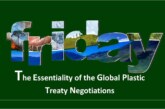By Shweta Tyagi*
The recently concluded G7 meet in Germany evince why the West may be adapting to accommodate the global South, particularly India. These trends have intensified in the face of lingering pandemic-induced disruptions and the ongoing Russia-Ukraine war. Straddling both major multilateral organizations places India stands at a unique vantage point, bridging the necessities of the global South with the compulsions of the global north. In its market potential and as a stable democratic anchor, New Delhi stands out.

The G7’s invitation to the four countries outside the informal group of seven most industrialised nations; Senegal, South Africa, India and Indonesia, represents critical nodes in the expanded Indo-Pacific region which could lead to the formation of an important supply chain network circuit. Indonesia in the Pacific theatre, India in the Indian Ocean, South Africa straddling the Indian and the Atlantic Oceans, and Senegal in the Atlantic Ocean could be the principal hubs of shipping and supply chains to sustain a future Indo-Pacific architecture, which is expansive and inclusive. India’s participation in both the major global events showcased opportunities and challenges ahead. The G7 provided a credible platform to realign some priorities for India in the light of strategic compulsions and changing priorities.
India’s rising economic profile and a resilient economy have ensured that it is now a regular invitee to the G7 summits. Since 2014, when Russia was evicted from the grouping, the G8 has functioned as G7. The Russia-Ukraine war may have created compulsions on the West to co-opt India in the group. It will serve New Delhi’s interests better if its Indo-Pacific commitments are kept distinct from a collective western agenda that may not serve its own interests. In steering clear of the doubling-down sanctions on Russia imposed during the G7 meet in Germany, India did just that.
Prime Minister Narendra Modi has urged G7 countries to help India take its digital technology innovation in the health sector to other developing countries.

He emphasised that India was contributing to a better environment through minimal contribution to global carbon emissions and asked rich nations to support India’s clean energy initiatives. As a major democracy and a rising economic power, India’s participation is key in resolving global governance challenges and today, more than any other time in recent history, New Delhi is willing to play a role in providing solutions to global problems. Prime Minister Narendra Modi’s focus was also on showcasing India as a responsible global stakeholder as he highlighted India achieving the target of 40% energy-capacity from non-fossil sources nine years before time and invited the G-7 countries to invest in the vast untapped market for clean energy technologies. Further he emphasised that energy access should not be the privilege of the rich only – a poor family also has the same rights on energy. He also pointed out that the impact of the geopolitical tension is not just limited to Europe. “The rising prices of energy and food grains are affecting all the countries. The energy and security of developing countries is particularly at risk,” Modi said during the summit. In fact India is a net importer of crude oil. Since global oil prices have spiked more than 60% since the start of 2022, Indian companies have to shell out more dollars. It means increased demand for dollars and consequently a weaker rupee.
At a time when the world order is intensely polarised, India remains one of the few nations which can engage with both the G-7 and BRICS in a matter of days with élan. New Delhi has been consistent about its stance on global matters and in the process has managed to generate a sense of trust with its varied interlocutors. India’s pursuit of a truly multipolar world makes it incumbent upon New Delhi to engage with multiple partners while never losing sight of its own vital interests. Partnerships should enhance India’s strategic autonomy, not constrain it. India’s G-7 engagement should also be seen in that light.
*Associate Editor, Focus Global Reporter



